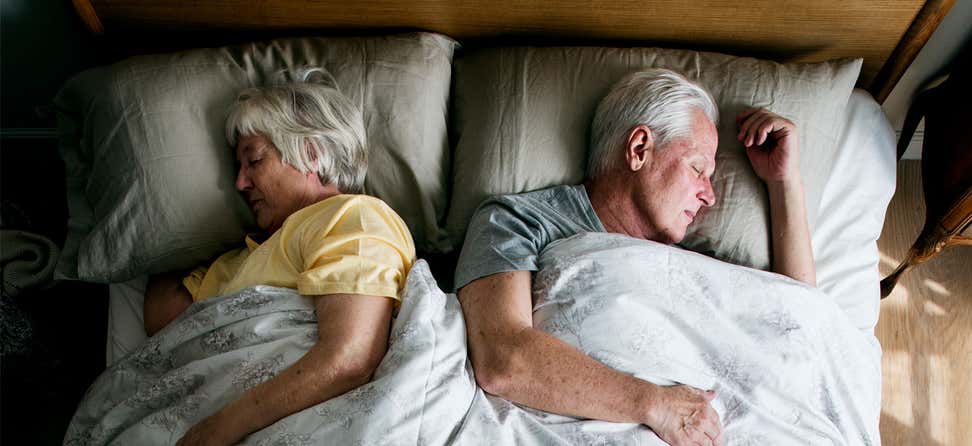Key Takeaways
From exciting adventures and new cultures to relaxing and sightseeing, traveling can be a treat.
Whether you’re traveling thousands of miles a year, or taking the short occasional trip, there are risks you’ll want to avoid.
Here are 6 tips to ensure your next trip is fun and safe.
1. Choose a hotel that meets your needs
While most hotels can accommodate a guest’s mobility, there are places that are off the beaten path or historical where updates haven’t been made. This can mean falls hazards on stairs or uneven floors.
Before booking a hotel, call ahead to make sure that the hotel has elevators and ask if the elevator is wheelchair accessible if you need it. If not, ask if they can accommodate a first-floor request.
Even if you’re traveling with a tour company, don’t hesitate to call a hotel directly if you have concerns about accessibility.
2. Don’t publicize your trip on social media
It’s natural to want to share your excitement about an upcoming trip, but think twice before posting it on social media. There are many reported cases of people using social media to target homes when the owner announces they’re going on a long trip.
Facebook’s default privacy setting isn’t particularly private. You may think only your closest friends can see your post, but unless you have strict privacy settings enabled, anyone who is friends with your friends, and even some people who aren’t acquainted with you at all, can see your post.
You also might want to consider asking a trusted friend or family member to house sit while you’re away.
3. Know the TSA rules
While you’re trying to figure out where to pack your sunhat and flip flops, don’t forget about your prescriptions. If you are one of the 8 in 10 older adults who takes at least one medication, always pack it in your carry-on where you can access it easily, and it can’t be lost by an airline.
If your medication is a liquid and requires that you also have syringes, pumps, freezer packs, or IV bags, the TSA will allow you to carry it all on the plane. Before you pack, check the TSA’s rules, so you know how to pack them.
It’s also a good idea to have a backup plan in case something goes wrong. Make sure to take a list of your medications, doctors, and the location of a pharmacy covered by your insurance (or Medicare) at your destination.
Bonus: If you’re 75 or older, TSA usually allows you to go through the security pre-check line, which means you don’t have to remove your shoes or separate laptops or liquids from your carry-on. For those younger than 75 who can’t—or don’t want to stand in long security lines—the TSA Precheck or Global Entry program is an option. TSA Precheck is for flights between U.S. airports, and Global Entry is for international flights. Each program has a non-refundable application fee, and you have to apply for the program well in advance of your travel. But if approved, your status lasts for five years. 
4. Stay healthy on route to, and on, the plane
Busy airports and tight spaces while getting on an airplane can be a fall risk. The airline will help if you call ahead and ask about priority boarding.
You’ll also want to talk with the airline if you have a chronic condition that has dietary restrictions, such as diabetes, high cholesterol, or hypertension, and you’re taking a long flight that overlaps when you know you should eat. A representative can tell you if they can accommodate your dietary needs. If they can’t, pack food for yourself.
Airplane air can pose challenges. A plane cabin at high altitudes typically has 10-20% less humidity than a normal environment, which can put you at higher risk of dehydration and respiratory diseases. So, drink lots of water on the plane.
It’s also good to take steps to protect your immune system, which naturally weakens with age. Pack anti-bacterial wipes in your carry-on so you can disinfect your seat, seatbelt, tray, and armrest. Before your trip, talk to your doctor to make sure you’re up-to-date on all of your immunizations, including the flu shot.
5. Don’t be a target for theft
Older adults are targets for theft and fraud. Whether you’re traveling alone or with a group, take precautions to protect yourself both inside and outside of your hotel room.
Check with your hotel to see if it has a safe in your room for your passport, jewelry, or excess cash. And always double-check to make sure the code works before placing your belongings inside. Keep anything you consider valuable inside the safe.
Consider also investing in pick-pocket proof travel clothes. Many companies design fashionable pants and jackets that come with tons of deep inside zipper and magnetically sealed pockets that help keep your valuables safe from pick pocketers.
If you’re traveling internationally, consider using cash for most purchases. Credit card fraud is prevalent in tourist destinations. Unless you plan to monitor your transaction history via a mobile app, cash will reduce your risk.
Getting foreign currency is easier than ever. Check with your home bank to see if you can use your debit card to withdraw cash from ATMs at your destination. Some banks will even let you withdraw without additional fees. Plus, you may get a better conversion rate doing it this way.
If you opt for the credit card route, call the credit card issuer before your trip to let them know where and when you’re traveling. They can tell you if there is a foreign transaction fee for using your card abroad and how the conversion rate is applied to charges. Alerting the company allows it to more easily track potential fraudulent activity and issue a refund quickly if you get hit. However, most credit card companies will deactivate your card in the case of fraud and will only mail a replacement to your account address. So take a back-up card just in case.
6. Keep important documents on hand
Before leaving home, make copies of your important documents, like your passport, driver’s license, Medicare card, and itinerary. Pack an extra set with you and make sure that you leave copies with people you trust at home (or have access to scanned versions). If you lose your ID or it’s stolen, this will make it easier to get replacements.
Also, always make sure to carry emergency contact information and identification on you while out and about. If something like a medical emergency happens, the people providing assistance will need to know your emergency contact and a health care provider at home.
Now that you’re equipped with these smart travel tips, enjoy your trip and make awesome new memories! Happy travels!










